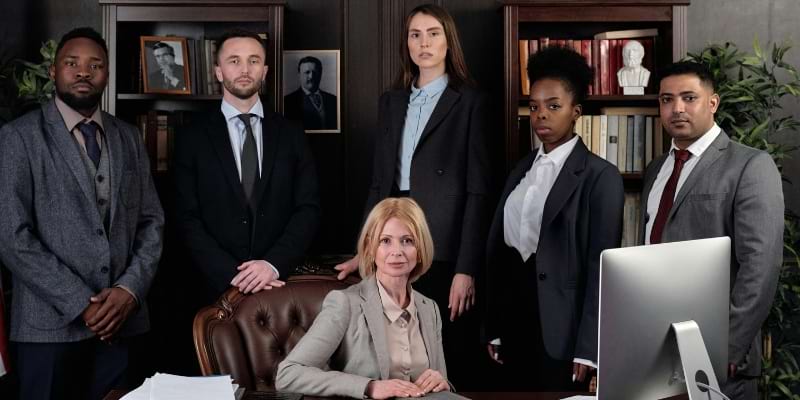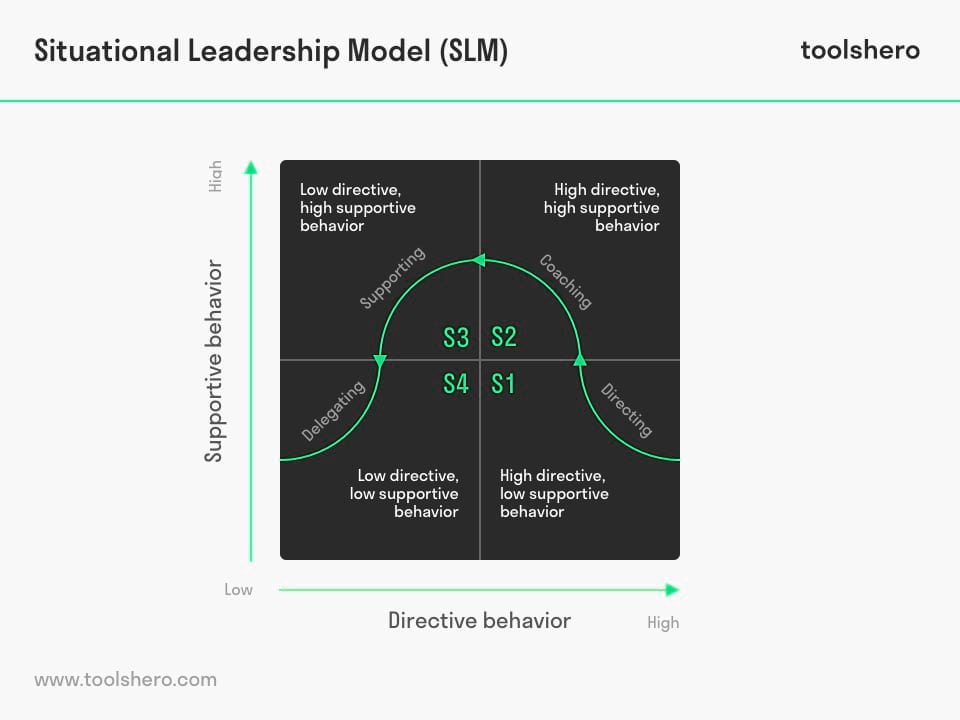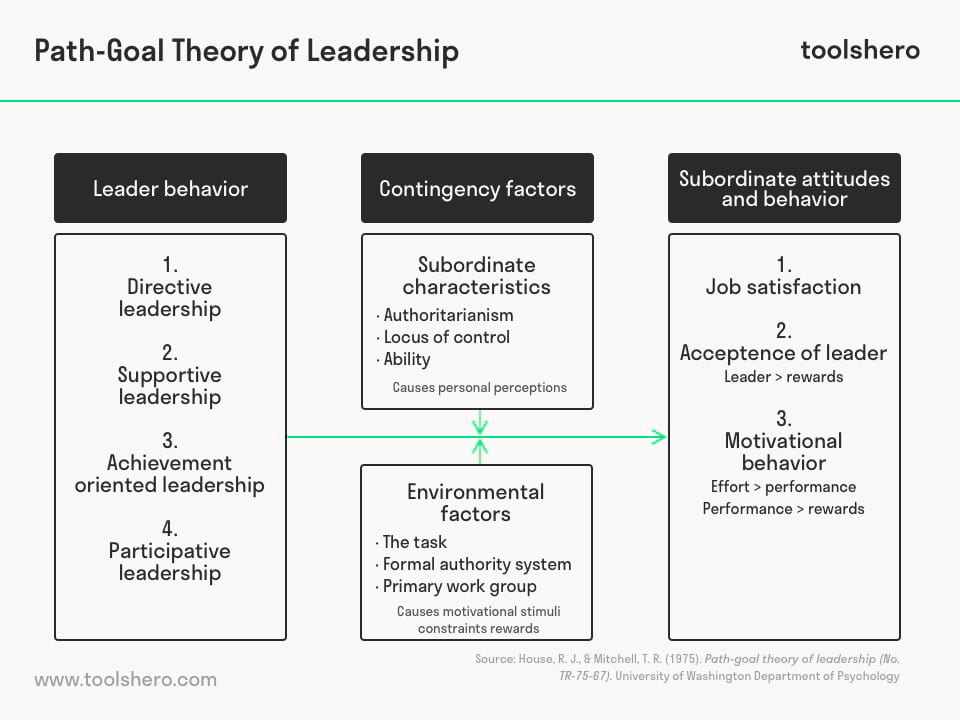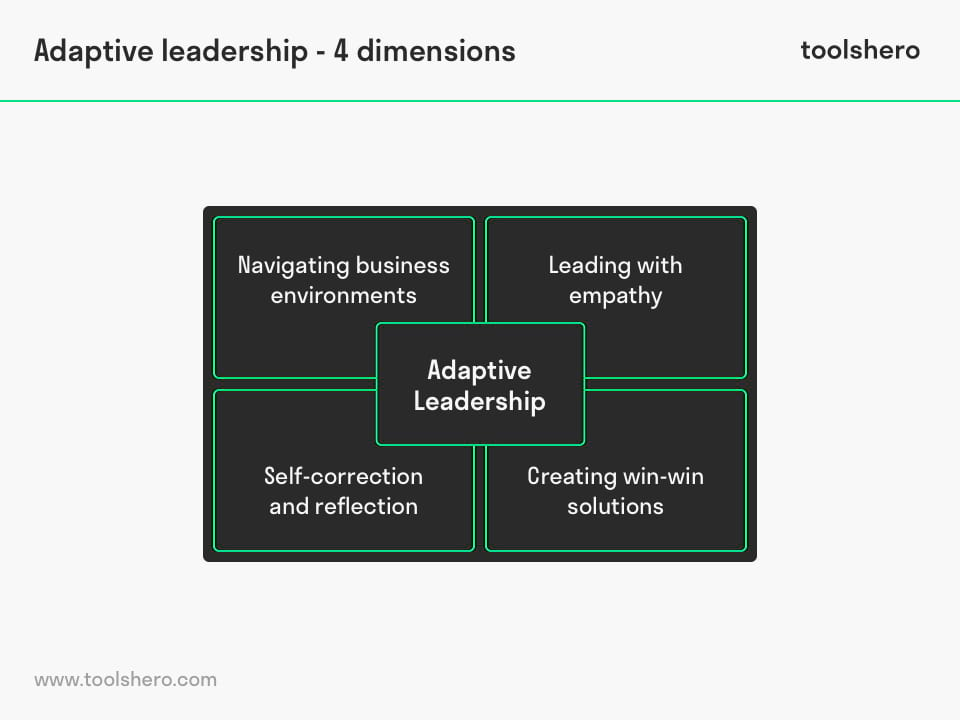What Makes a Great Leader?

What makes a great leader? A frequently asked question that has been researched and answered in countless ways over time. Where leadership was once mostly top-down and authoritarian, we now live in a day and age where leaders prioritize the needs of their followers and lead with qualities such as empathy, encouragement and accountability.
There is of course not one right answer to what makes a great leader, as this greatly depends on the group of followers and the situation. It is not just the personal characteristics of the leader that are decisive; those of the followers are too. In addition, the situation is determinative and the leadership style depends on this.
Situational Leadership
In the 1970s management consultants Paul Hersey and Ken Blanchard specified and further developed the concept of Situational Leadership. They indicated that the effectiveness of the leadership style is dependent on the situation, and what determines the situation are both the maturity of the employees and their attitudes.
Hersey and Blanchard therefore distinguish between four levels of maturity, or leadership approaches, that can be placed in their Situational Leadership Model:
- S1. Directing: a lot of direction by the leader and little support; low competence and low motivation.
- S2. Coaching: a lot of direction by the leader and a lot of support; low competence and high motivation.
- S3. Supporting: little direction by the leader and a lot of support; high competence and low motivation.
- S4. Delegating: little direction by the leader and little support; high competence and high motivation.

Figure 1. Situational Leadership Model by Blanchard and Hersey
Successful leaders will have to adapt their situational leadership styles to the various situations and the suitability of their followers or employees.
Path Goal Theory
Another leadership theory that assumes that leaders are flexible and can adapt their leadership style to the situation, is the Path Goal Theory. Management experts Robert J. House and Terence R. Mitchell, who developed this theory, also distinguish between 4 leadership styles:
- Directive leadership: the leader knows exactly what must be done and how. Employees get close supervision.
- Supportive leadership: the leader pays a lot of attention to the needs and well-being of the employees. Employees get the support they need.
- Achievement-oriented leadership: the leader trusts the ability of the employees and sets challenging goals, expecting achievement. Employees work independently and have problem-solving capacities.
- Participative leadership: the leader works closely with the employees and includes their ideas and opinion. Employees are highly involved and have specialist knowledge.

Figure 2. Path-Goal Theory of Leadership Model by House and Mitchell
The Path-Goal Theory ensures that leaders can improve the output of their organisation by influencing their employees and guiding them to their goal. They know what motivates their employees and adjust their leadership style accordingly.
Theory X and Theory Y
One more leadership theory that aligns with the idea of adapting leadership styles according to followers or employees, is the Theory X and Theory Y by management professor Douglas McGregor. McGregor argues that the style of leadership depends on the manager’s perception of people and their capabilities.
Theory X starts from the assumption that people are naturally lazy, want to avoid work as much as possible, do not wish to take responsibility, have no ambition and prefer to be supervised. Theory Y management assumes that people are inherently happy to work, they want to exert themselves in the decision making process and they are motivated to pursue objectives and reach a higher level.
So, in addition to their preference for a certain leadership style and the work that has to be done, a leader or manager will either opt for Theory X or Theory Y. These two theories are however not based on a single truth. Additionally, Theory X managers and Theory Y managers often see their perceptions of people confirmed. Therefore, a good manager must realize that leadership affects employee behaviour.
Adaptive Leadership
All in all, the above theories show that one of the key qualities of a good leader is adaptability. The importance of which is confirmed in research by Ron Heifetz and Marty Linsky at Harvard University. They developed the Adaptive Leadership theory, which focuses on 4 dimensions that help leaders to better prepare for and adapt to unpredictable business environments:
1. Navigating business environments
Adaptive leaders should embrace uncertainty and encourage the organisation to look for new approaches.
2. Leading with empathy
Adaptive leaders create a group attitude instead of an atmosphere of divide and conquer. They understand alternative perspectives and ideas and are able to share them with others by looking at the organisation through the eyes of others.
3. Learning through self-correction and reflection
Adaptive leaders encourage experimentation. Some experiments will fail, but those failures can serve as lessons for the future.
4. Creating win-win solutions
An adaptive leader values platforms for cooperation and builds on them. An organisation’s success often depends on the involvement of an extended network of stakeholders.

Figure 3. The Four Dimensions of Adaptive Leadership
Improving Your Leadership
It is clear that there are different leadership styles and approaches to choose from as a leader. What makes a great leader, depends on several factors, like the group and the situation. Therefore, adaptability is an essential quality. But there are many other qualities and skills you can consider when it comes to great leadership, like:
- Communication skills
- Problem-solving skills
- Emotional intelligence skills
- Authenticity
- Self-discipline
- Influence skills
- Creativity
- Resilience
- Empathy
Have a look on our platform to learn more about the different styles, qualities and skills in leadership. Becoming a Toolshero member gives you unlimited access to an extensive database with practical knowledge to improve your leadership skills, at an affordable price. You pick and choose, according to your needs.
It can furthermore be useful to explore your own leadership style in order to maximize it, as well as learn practical leadership skills in a course format to become a better leader. Have a look at the online courses below to see what works for you. Wishing you much success, growth & fulfilment on your leadership journey!
Resources to dive deeper:
- What’s Your Leadership Style? – Course and Certificate on Udemy.com
- Leadership Mastery | Self-Discipline & Influence Skills – Course and Certificate on Udemy.com
- Mastering Adaptive Leadership – Course and Certificate on Udemy.com
- Practical Leadership Skills – Course and Certificate on Udemy.com
- The Emotionally Intelligent Leader – Course and Certificate on Udemy.com
How to cite this article:
Baas, S. L. (2024). What Makes a Great Leader?. Retrieved [insert date] from Toolshero: https://www.toolshero.com/blog/what-makes-a-great-leader/
Original publication date: 05/29/2024 | Last update: 06/23/2024
Add a link to this page on your website:
<a href=”https://www.toolshero.com/blog/what-makes-a-great-leader/”>Toolshero: What Makes a Great Leader?</a>











